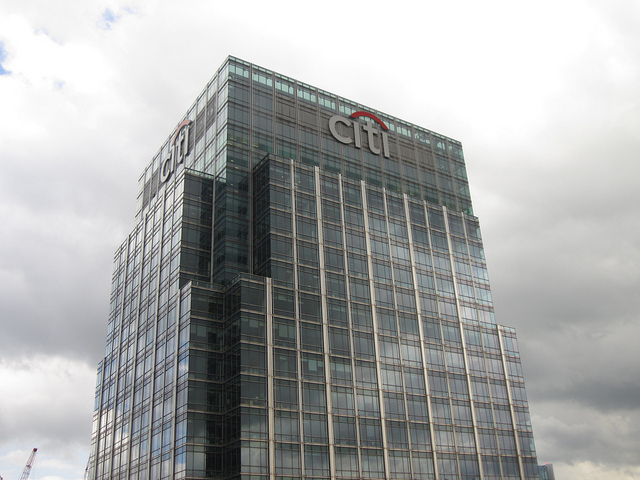Citigroup Inc: Investors Should Take a Serious Look at Citi Stock

Is There More Upside Ahead for Citi Stock?
Citigroup Inc (NYSE:C) is one of the largest financial companies in the world based on assets. A very diversified company, Citigroup has locations around the world, with offices in the United States, Europe, and Asia, just to name a few. The various divisions under Citigroup include everyday customer banking, global consumer banking, investment banking, and institutional services.
C stock is up 43% over the past year, so is an investment worth your time? Or is the run over? To answer this question, let’s take a look at external and internal factors which can impact the company’s earnings.
External Factors
With any company, the most important number for investors is the margin ratios. This is the money that remains following the business covering all its costs.
The company uses money in a variety of ways, from a dividend to share repurchases to internal spending. These methods will influence the returns seen by investors, providing more capital.
One major external influence on margins is the benchmark interest rate determined by the U.S. Federal Reserve, as Citigroup both holds money and offers loans. The interest rates on these products will be different, though higher on the loan. Citigroup cannot choose an interest rate to charge out of thin air; rather, it is determined based on the benchmark rate set by the Fed.
Improving rates from the Fed tend to lead to higher margins. Present interest rates are low, but they are rising, which is a very positive catalyst. There have been three rate hikes in the past year, and since they’re low, there’s nowhere to go but up. (Source: “United States Fed Funds Rate,” Trading Economics, last accessed August 17, 2017.)
There is an immediate positive affect on the margins when there is a rate hike. This is because the majority of the products on the loans side have a variable rate feature attached. Therefore, when there is a rate hike, a higher interest rate is paid by the borrower. The same can’t be said for savers; there are both type of products available, with either a fixed or variable interest rate, meaning the difference in interest rates is going to create a spread over time.
Internal Factors
With interest rates beginning to increase in the U.S., Citigroup should be expected to increase its loan book. Also, a loan would not be paid in a short period of time, meaning Citigroup sees an immediate boost in earnings with each rate hike.
This is an obvious focus for the company, seen all across the different business divisions. From the second quarter of 2016 to the same quarter of 2017, average loan growth increased by three percent. Also impressive was the average loan growth of 12% for North American consumers. With this type of growth in operations, there is the likelihood of seeing the revenue and margins increase as well. All this loan growth is possible because the average deposits within the organization have also increased by three percent. (Source: “Second Quarter 2017 Fixed Income Investor Review,” Citigroup In., July 20, 2017.)
Final Thoughts About Citi Stock
It is hard to determine if a stock will trade higher over time. However, by knowing key information, a more thoughtful decision could be made based on logic alone.
There is a lot of evidence that C stock leans towards the bullish side of things. Even though the stock is up more than the S&P 500 over the past year, there is still room to move higher. The past will not guarantee future performance, which is why you need to consider what’s going on both inside and outside the company.
C stock is trading at $67.30 and offers a current dividend yield of 1.9%.
Also Read:
5 Top Financial ETFs to Watch in 2017
Dividend-Paying Bank Stocks to Consider for Retirement












